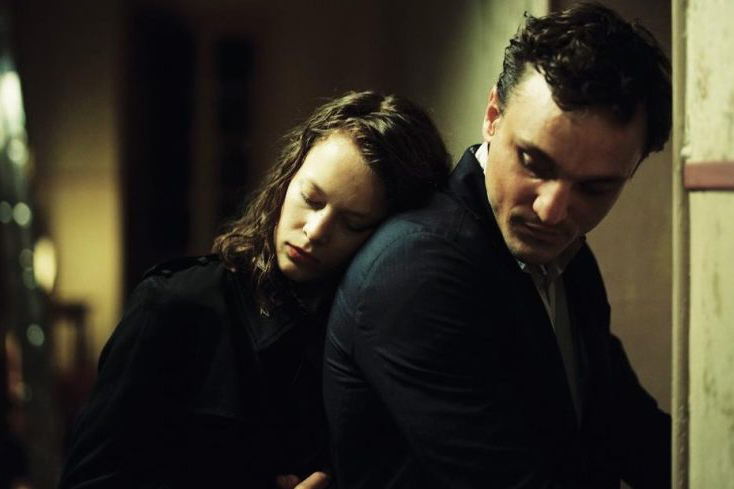
'Transit' Meshes Nazi with Contemporary Oppression
By Diane Carson
Some films are just too dense to comprehend on one viewing, and for me that's the case with 'Transit.' Not that the film is unimpressive; rather, the complex, layered narrative enriches German director Christian Petzold's adaptation of Anna Seghers' 1944 novel to present-day Marseille as the story of refugees meshes two time periods: 1940's Berlin and contemporary France.
The central character, Georg, says he flees the Nazis in occupied Paris while art direction, vehicles, and clothing communicate today's world. Others in refugee limbo represent a contemporary cross section from Africa to the Middle East, all "illegals," lacking proper papers. When Georg realizes he has accidentally come into possession of the passport and transit documents of dead author Weidel, he adopts that identity. He's soon romantically attracted to Weidel's widow Marie, who searches for her husband while involved with a doctor named Richard. If that doesn't pose sufficient complexity, a narrator comments at various points, this person revealed only in the closing moments.
The strength of the acting, particularly Franz Rogowski as Georg, propels the film. In addition, Hans Fromm's cinematography gives the real Marseille locations an intimidating, dreaded atmosphere with scenes staged in today’s cafes, streets, and apartments. Seldom moving the camera, often shooting from long shots and in confined spaces, the compositions mirror the claustrophobic world these men and women inhabit. Every interaction suggests the connection between oppression sixty years ago and now; for example, men huddle in a railroad car; young and old refugees congregate in a claustrophobic, dark room; a deaf-mute mother fears for her young son, while American bureaucrats dispassionately approve or refuse visas to Mexico.
Writer / director Petzold has written that he blurs the stories “to create a timeless exploration of the plight of displaced people,” countering the “historical silence” so pervasive then and now. For these individuals, “home is basically homelessness.” After watching 'Transit,' I find their traumas and dilemmas poignant and profound, especially in the face of governmental indifference.
In German and French with English subtitles. Check listings.


